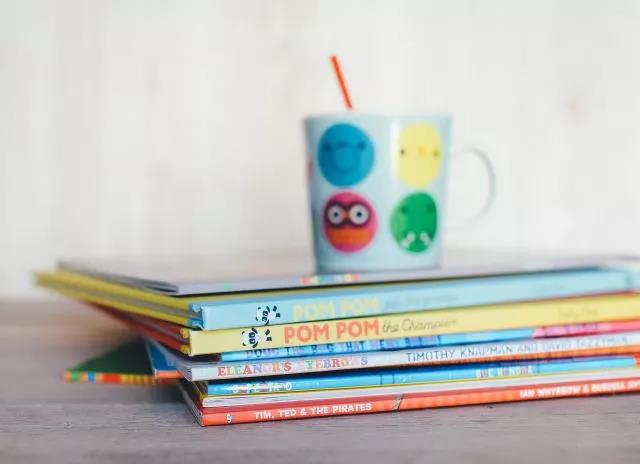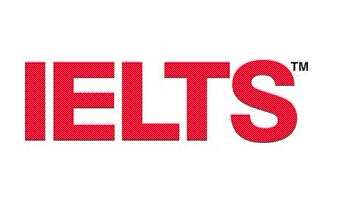托福阅读材料之巧克力吃得多,得诺贝尔奖的几率越大?
2013-10-08 17:53 供稿单位: 新航道
出国英语考试有哪些 雅思6.5是什么水平 雅思阅读评分标准 托福阅读评分标准 雅思和托福的区别
Eating more chocolate improves a nation's chances of producing Nobel Prize winners - or at least that's what a recent study appears to suggest. But how much chocolate do Nobel laureates eat, and how could any such link be explained?
近日一项研究表明:巧克力消耗越多,国民获得诺贝尔奖的几率更大。那么诺贝尔奖获得者们的巧克力消耗量是多少呢?这其中的联系该如何解释呢?
The study's author, Franz Messerli of Colombia University, started wondering about the power of chocolate after reading that cocoa was good for you.
该研究的作者,来自哥伦比亚大学的Franz Messerli在阅读可可有益身体健康的文章后开始了此项研究。
One paper suggested regular cocoa intake led to improved mental function in elderly patients with mild cognitive impairment, a condition which is often a precursor to dementia, he recalls.
他回忆说,曾有一篇论文谈论到,可可脂的日常摄入能提高有轻微认知损伤的老年人的心理机能,认知损伤通常被看做是痴呆的前兆。
"There is data in rats showing that they live longer and have better cognitive function when they eat chocolate, and even in snails you can show that the snail memory is actually improved," he says.
“而通过对老鼠的实验,吃过巧克力后它们的寿命和认知均有所提高,即使是以蜗牛为实验对象,也可以发现他们的记忆力确实有所提高。”他说道。
So Messerli took the number of Nobel Prize winners in a country as an indicator of general national intelligence and compared that with the nation's chocolate consumption. The results - published in the New England Journal of Medicine - were striking.
于是,Messerli选取了一个国家获得诺贝尔奖的人数作为该国的一般国民素质指标,然后与该国的巧克力消费量对比,他的发现成果很让人吃惊,目前该研究结果已发表在《新英格兰医学期刊》上。
"When you correlate the two - the chocolate consumption with the number of Nobel prize laureates per capita - there is an incredibly close relationship," he says.
“当你将巧克力消费量与获得诺贝尔奖的人数对比时,你会发现两者有着密切联系。”他如是说。
"This correlation has a 'P value' of 0.0001. This means there is a less than one-in-10,000 probability that this correlation is simply down to chance."
“其假定概率为0.0001,意味着一万个样本中才会出现一个特例。”
It might not surprise you that Switzerland came top of the chocolate-fuelled league of intelligence, having both the highest chocolate consumption per head and also the highest number of Nobel laureates per capita.
意料之中,瑞士位于‘巧克力加油智力联盟’的首位,其每人巧克力消费量和人均诺贝尔奖人数均位列。
Sweden, however, was an anomaly. It had a very high number of Nobel laureates but its people consumed much less chocolate on average.
瑞典的情况则有一些特殊,其诺贝尔奖获奖人数很高,但巧克力消费量比较平均。
Messerli has a theory: "The Nobel prize obviously is donated or evaluated in Sweden [apart from the Peace Prize] so I thought that the Swedes might have a slightly patriotic bias.
对此,Messerli有自己的说法:“诺贝尔奖是在瑞典评出(除了和平奖),所以我觉得瑞典可能一点点偏心。”
"Or the other option is that the Swedes are excessively sensitive and only small amounts stimulate greatly their intelligence, so that might be the reason that they have so many Nobel Prize laureates."
“或者瑞典人异常敏锐,只需一点点巧克力就能激发他们的才能,所以他们才会有如此多的诺贝尔奖获得者。”
We conducted our own, entirely unscientific, survey to ascertain just how much chocolate Nobel laureates ate.
我们开展了完全没有科学依据的调查,来探知诺贝尔奖获得者们的巧克力消费量。
Christopher Pissarides, from the London School of Economics, reckons his chocolate consumption laid the foundations for his Nobel Prize for Economics in 2010.
来自伦敦经济学院的克里斯托弗·皮萨利德斯估算了他在获得2010年诺贝尔经济学奖前的巧克力消费量。
"Throughout my life, ever since I was a young boy, chocolate was part of my diet. I would eat it on a daily basis. It's one of the things I eat to cheer me up.
“在我的生活中,当我还是个小孩子时,巧克力就成为我饮食的一部分。我每天都吃巧克力,它能使我振奋起来。”
"To win a Nobel Prize you have to produce something that others haven't thought about - chocolate that makes you feel good might contribute a little bit. Of course it's not the main factor but... anything that contributes to a better life and a better outlook in your life then contributes to the quality of your work."
“要想赢得诺贝尔奖,你得做出一些别人想不到的事情——巧克力让你感觉好可能只是其中的一丁点贡献,当然不是主要原因。任何能使你生活更好一点的东西同时也对你的工作质量有贡献。”
However, Rolf Zinkernagel - the largely Swiss-educated 1996 Nobel Prize winner for medicine - bucks his national trend.
然而,曾在瑞士学习,后荣获1996年诺贝尔医学奖的洛夫·辛克纳吉却不是巧克力消费大户。
"I am an outlier, because I don't eat more than - and never have eaten more than - half a kilogram of chocolate per year," he says.
“我不是上述其中的一员,因为我一年中吃过的巧克力从来不超过1千克。”他说道。
Robert Grubbs, an American who shared the Nobel Prize for Chemistry in 2005, says he eats chocolate whenever possible.
与他人共同获得2005年诺贝尔化学奖的罗伯特·格拉布表示他经常吃巧克力。
"I had a friend who introduced me to chocolate and beer when we were younger. I have transferred that now to chocolate and red wine.I like to hike and I eat chocolate then, I eat chocolate whenever I can."
“我年轻时有个朋友向我介绍了巧克力和啤酒,而现在我的习惯是巧克力和红酒。我喜欢徒步旅行后吃巧克力,我随时都吃巧克力。”
But this is a controversial subject.
但这是个自相矛盾的主题。
Grubbs' countryman, Eric Cornell, who won the Nobel Prize in Physics in 2001, told Reuters: "I attribute essentially all my success to the very large amount of chocolate that I consume. Personally I feel that milk chocolate makes you stupid… dark chocolate is the way to go. It's one thing if you want a medicine or chemistry Nobel Prize but if you want a physics Nobel Prize it pretty much has got to be dark chocolate."
格拉布的同僚,曾获得2001年诺贝尔物理学奖的埃里克·康奈尔告诉路透社:“我将我所有的成功归功于我吃掉的巧克力,个人认为牛奶巧克力会使人变笨,黑巧克力是的。”
But when More or Less contacted him to elaborate on this comment, he changed his tune.
但当《More or Less》就此事联系采访他时,他改变了自己的说法。
"I deeply regret the rash remarks I made to the media. We scientists should strive to maintain objective neutrality and refrain from declaring our affiliation either with milk chocolate or with dark chocolate," he said.
“对于我曾经的轻率言论我感到遗憾,作为科学家应该保持中立可观,避免对牛奶巧克力或黑巧克力表现过度的喜恶。”
"Now I ask that the media kindly respect my family's privacy in this difficult time."
“我希望媒体能在这时候尊重我的家庭隐私。”
It might surprise you that we are trying to make a serious point. This is a classic case where correlation, however strong, does not mean causation.
你可能会感到惊讶,我们想在此阐述一种严肃的观点:即使有些事件之间存在很多关联,但并不意味着他们就是因果关系。
Messerli gave us another example. In post-war Germany, the human birth rate fell along with the stork population. Were fewer storks bringing fewer babies?
Messerli给我们举了另外一个例子,在战后德国,人口出生率与鹳的数量均下降,那是否鹳的减少导致婴儿减少呢?
The answer was that more homes were being built, destroying the storks' habitat. And the homes were small - not the sort of places you could raise a large family in.
真正的原因是房屋越建越多,导致鹳的栖息地被破坏,房屋面积的减小,使得多成员家庭减少。
"This is a very, very common way of thinking," he says.
“这是很普遍的思考方式。”他说道。
"When you see a correlation, you do think there is causation in one way or another. And in general it's absolutely true. But here we have a classic example where we cannot find a good reason why these two correlate so closely."
“当我们看到事物之间的联系时,就会想当然地想起各种因果关系。一般来说是正确的,但是也有经典案例表明,我们找不到两种事物紧密关联的原因。”

- 新航道,英语成功之道。时间获取新航道英语学习资料和新鲜资讯,请在微信公众账号中搜索「新航道英语」或者「xhdenglish」,或用手机扫描左方二维码,即可获得新航道每日精华内容推送和英语学习经验分享,并参与新航道举办的各项活动。
精彩专题
更多视频荟萃
更多
-
120托福节之李老师:你的托福阅读领路人!
时长:01-18

-
120托福节之冉维:你的托福写作领路人!
时长:01-18
托福预测
更多
-
2017年托福听力考情分析及2018年备考建议
2017 年全年的48 场新托福考试已经落下帷...
- 2017年托福口语考情分析及2018年备考建议
- 2017年托福阅读考情分析及2018年备考建议
- 2017年托福写作考情分析及2018年备考建议(下)
- 2017年托福写作考情分析及2018年备考建议(上)









